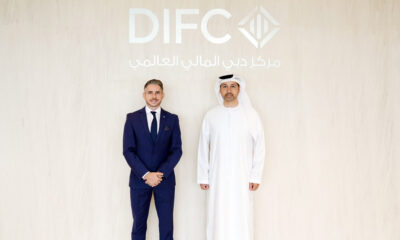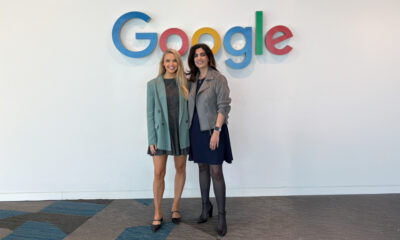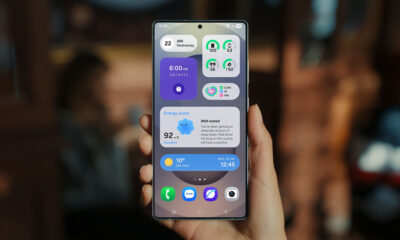News
Dubai’s Finance Strategy For 2026 Hopes To Achieve Financial Sustainability
Dubai’s Department of Finance has unveiled a strategic plan for 2026 that looks to achieve objectives laid out in the Dubai Strategy 2030.

Dubai’s Department of Finance recently announced its official “Finance Strategy for 2026”, which ties in with the Dubai Strategy 2030 project, an ambitious plan to elevate Dubai as a global platform for knowledge-based, sustainable, and innovation-focused businesses.
The director of the Department of Finance’s Strategy & Corporate Performance Division, Jasim Mohamad Al Zarooni, noted that the plan is based on the vision of “Global leadership and innovative financial sustainability”, centered around six ambitious objectives that were originally laid out in the Smart Dubai 2021 roadmap, with a plan to achieve financial sustainability and a fair and efficient distribution of resources within the emirate.
Here are the six strategic objectives in brief:
A Smart, Liveable & Resilient City
With improved connectedness, simplified and sustainable living, plus all of the critical infrastructure to boost efficiency and promote resilience.
A Globally Competitive Economy Powered By Disruptive Technologies
Pioneering new rules of economic development and engagement to transition to a circular economy that shares assets and resources, whilst building an inspired and highly productive workforce.
An Interconnected Society With Easily Accessible Social Services
Improve quality of life for both residents and visitors by embracing technology to streamline the emirate’s social, cultural, education, and healthcare experiences.
Smooth Transport, Driven By Autonomous & Shared Mobility Solutions
Pioneer smart innovative mobility solutions and automation for a seamless and safe transportation experience in the emirate and reduce commuting time.
A Clean Environment Enabled By Cutting-Edge ICT Innovations
Ensure the sustainability and quality of the emirate’s resources (water, air, energy, and land) for residents and visitors and digitally transform utilities, manufacturing, transportation, and waste treatment.
A Digital, Lean, And Connected Government
Eliminate the need to physically interact with government departments by providing 100% of eligible public services through digital channels and targeting full digital adoption.
The government aims to turn Dubai into the preferred manufacturing platform for global businesses, promoting energy-efficient and environmentally friendly manufacturing while fostering a culture of knowledge and innovation that could turn the emirate into a central hub for the global Islamic products market.
News
Rabbit Expands Hyperlocal Delivery Service In Saudi Arabia
The e-commerce startup is aiming to tap into the Kingdom’s underdeveloped e-grocery sector with a tech-first, locally rooted strategy.

Rabbit, an Egyptian-born hyperlocal e-commerce startup, is expanding into the Saudi Arabian market, setting its sights on delivering 20 million items across major cities by 2026.
The company, founded in 2021, is already operational in the Kingdom, with its regional headquarters now open in Riyadh and an established network of strategically located fulfillment centers — commonly known as “dark stores” — across the capital.
The timing is strategic: Saudi Arabia’s online grocery transactions currently sit at 1.3%, notably behind the UAE (5.3%) and the United States (4.8%). With the Kingdom’s food and grocery market estimated at $60 billion, even a modest increase in online adoption could create a multi-billion-dollar opportunity.
Rabbit also sees a clear alignment between its business goals and Saudi Arabia’s Vision 2030, which aims to boost retail sector innovation, support small and medium-sized enterprises, attract foreign investment, and develop a robust digital economy.
The company’s e-commerce model is based on speed and efficiency. Delivery of anything from groceries and snacks to cosmetics and household staples is promised in 20 minutes or less, facilitated by a tightly optimized logistics system — a crucial component in a sector where profit margins and delivery expectations are razor-thin.
Despite the challenges, Rabbit has already found its stride in Egypt. In just over three years, the app has been used by 1.4 million customers to deliver more than 40 million items. Revenue has surged, growing more than eightfold in the past two years alone.
Also Read: Top E-Commerce Websites In The Middle East In 2025
CEO and Co-Founder Ahmad Yousry commented: “We are delighted to announce Rabbit’s expansion into the Kingdom. We pride ourselves on being a hyperlocal company, bringing our bleeding-edge tech and experience to transform the grocery shopping experience for Saudi households, and delivering the best products – especially local favorites, in just 20 minutes”.
The company’s growth strategy avoids the pitfalls of over-reliance on aggressive discounting. Instead, Rabbit leans on operational efficiency, customer retention, and smart scaling. The approach is paying off, having already attracted major investment from the likes of Lorax Capital Partners, Global Ventures, Raed Ventures, and Beltone Venture Capital, alongside earlier investors such as Global Founders Capital, Goodwater Capital, and Hub71.


























